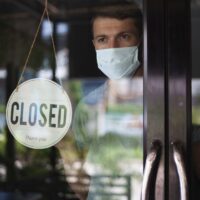New York Courts Continue to Rule for Insurers in Business Interruption Cases

We previously covered a number of business interruption insurance coverage lawsuits related to the coronavirus pandemic. As the pandemic continues and more case law develops, the trend has become abundantly clear: New York courts understand that COVID-19-related closures do not constitute actual physical losses for the purposes of business interruption insurance. A recent federal case out of the Southern District of New York illustrates the prevailing opinion on the business interruption issue. Continue reading to learn about the decision, and call a knowledgeable New York insurance coverage defense attorney for help defending against overbroad insurance coverage claims.
New York Federal Court Summarily Dismisses Coronavirus Business Interruption Claim
The matter of Office Solution Group, LLC v. National Fire Ins. Co. of Hartford concerned a policyholder based in Manhattan in the business of office project management and furniture installation. The policyholder had a commercial property policy with the defendant. In March 2020, the policyholder was forced to close its storefront as part of New York’s coronavirus emergency and quarantine protocol. The primary source of income for the business was face-to-face customer interaction at its office space. The loss of in-person capacity costs the business significantly, leading to cost-cutting layoffs. The policyholder filed for coverage under its commercial insurance policy.
The defendant insurer denied business income and civil authority coverage on the grounds that the policy’s business interruption coverage required “direct physical loss of or damage to property.” Suing for coverage, the plaintiff argued both that the policy covered “loss of use” due to the novel coronavirus and that potential coronavirus contamination constitutes a physical loss.
In ruling on a motion to dismiss the case brought by the defendant, the court quickly dispensed with the former argument: “Each of the applicable provisions in the Policy only applies when the covered property is physically damaged or altered and does not apply to the loss of use Plaintiff suffered.” Accordingly, “the question is whether the insured premises experienced direct physical loss or damage.” The plaintiff argued that the loss of use can be characterized as physical loss because its inability to use its office as it had before the pandemic “rendered the property substantially unusable and uninhabitable.”
The federal court had little trouble finding that the plaintiff’s arguments were without merit. Even before the coronavirus pandemic, New York courts have consistently held that the term “direct physical loss or damage” “unambiguously, requires some form of actual, physical damage to the insured premises to trigger loss of business income and extra expense coverage.” Courts have refused to interpret the phrase to include simple loss of use of the property without actual damage caused by floods, fires, or other events.
The court went on to survey the bevy of recent cases covering the exact issue at hand over the last year. New York courts, both state and federal, have unanimously held that “loss of use caused by the COVID-19 pandemic is not physical damage.” New York courts have consistently asserted that “ ’direct physical loss of or damage’ language requires physical damage to invoke coverage, and that loss of use due to the pandemic does not constitute physical damage when the covered property was physically unharmed by the virus.”
The policyholder’s arguments concerning civil authority coverage were likewise flawed. Such coverage applies when there is a “suspension or delay of operations”’ due to “action of civil authority that prohibits access,” but the “action must result from a civil authority’s response to direct physical loss of or damage to property” other than the covered property. The coverage thus applies only where there is physical damage to a neighboring property, meaning the same linguistic analysis applies: Potential coronavirus contamination does not constitute direct physical loss of or damage to property.
The court went on to note that, even notwithstanding the “physical damage” limitation, the policy’s “microbe exclusion” would also have excluded coverage based on the coronavirus pandemic. For those reasons, the Southern District of New York granted the insurer’s motion to dismiss and terminated the case.
For experienced and effective legal guidance on a New York insurance defense or toxic tort claim, contact the Islip offices of Richard A. Fogel at 516-721-7161.